Campaigns are something special.
And at the same time, increasingly rare...
As we grow, we don't have time, we don't have groups, we don't have the mood. But is it really impossible to relive the experience of a campaign like it used to be?
Being the classic vision of our hobby, campaigns are adventures connected in a great plot that allows the evolution of novice characters to great legends with impressive feats.
Campaigns can last for months or even years, and as a result, we see less of them happening.
This article is a sequel to our list of tips for one-shots and events, you can check it out here and will teach techniques to make life easier for GMs and players who want to venture into this incredible style!
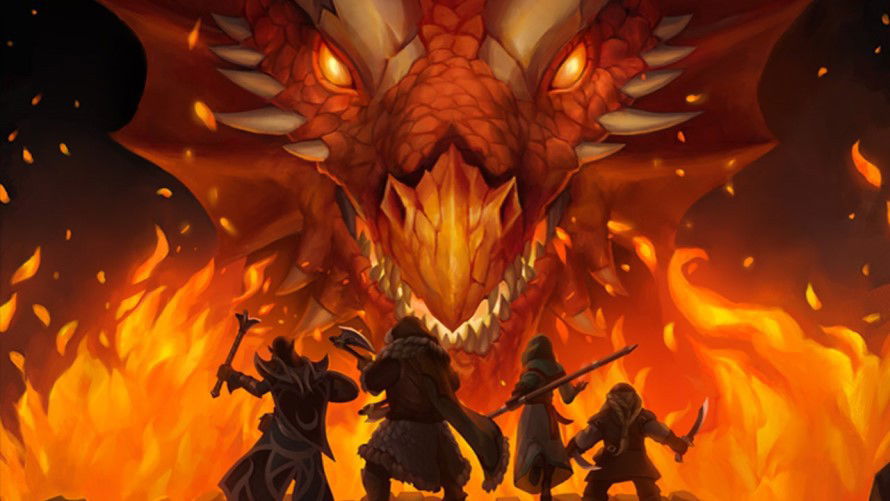
Know Your Players
Preferences
Campaigns can take a long time, so it's important before any effort to know exactly what your group wants.
Talk to players, find out what they're looking for and what kind of game they'd like to have in the long run, ask for examples and tips before starting your next steps.
It will be impossible to please everyone completely, but with effort and dialogue, it will be possible to reach a common point with the table and this will help keep the mood and interaction during all narratives.
Triggers
Some players may be uncomfortable with certain themes and playstyles, and it is important to respect these when creating a campaign.
Ignoring triggers creates problems in and out of the game, dissatisfaction and even breakup of the group due to events that, in the vast majority of times, are not necessary.
Don't ignore this point, as a narrator and friend of your players, it is your duty to cherish the fun and safety of the table you are creating. Be aware and have empathy with friends, it's important.
Session zero
The so-called “session zero” has become a standard in the creation of many campaigns, functioning as the process of organizing the game's foundations before the normal sessions actually start.
Zero sessions can include preferences, triggers, character creation, setting and everything else important so that GM and players know clearly what to expect in the future.
Know Your Characters
Use History and Objectives
It is normal for players to create characters with dramatic goals and backgrounds, and this is an important tool.
You don't need and shouldn't require great effort on this part, as the important thing about your stories will be created in play, but you should try to connect the main points of the characters' background at your table with your story goals.
Has a character's village been attacked by goblins? Perhaps they were sent by order of the campaign's villain. A former ally betrayed another character? He can be the antagonist's right-hand man in your story without too much trouble.
Just avoid using history against characters for free. If someone creates a family for your character and has them constantly used as hostages or killed for no reason, you can be sure that your next story will be much simpler precisely so as not to create weaknesses.
Make them protagonists
Even in realistic campaigns, your characters are protagonists and need to shine.
Some will be proactive and look for the right ways to act when necessary, but others for various reasons may not be so dynamic and you, as the narrator, should look for ways to make these characters important to the narrative.
Sporadically look for moments where each character's talents are really relevant to the team's success, this will create the sense of importance and protagonism that players seek when evolving their characters in a campaign.
Make them a group
Individualistic players or players with a cold and lonely theme are very common and this, as valid as it is as a narrative, can disrupt the progress of the game.
Create connections between the members of the group, give a motivation for the existence of the union of these players, for example, a common goal where everyone is necessary for success.
The campaign will be long and, therefore, both the characters and the unity of the group must be loved by the players so that the emotion remains in moments of risk, death or change.
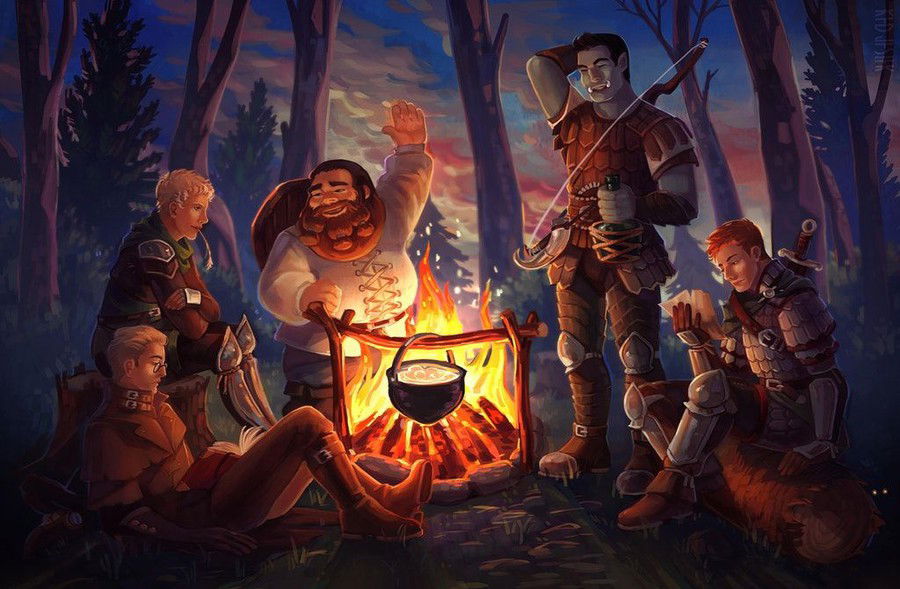
Know Your Game
Learn the System
You, the Storyteller, must know the system you'll be playing more than anyone else.
Knowing the rules partially is a benefit given only to novice players and even a storyteller at the beginning of their career should try to learn what they are going to play, after all, you will be a referee and your decision will be of the utmost importance.
If you don't have time to learn a big system, look for a small, even minimalistic system. There are thousands of RPGs with few pages that allow for narratives as good as the biggest ones, so don't be afraid to use them.
Read the Scenario
Similar to the system, but not as drastic. Scenarios can be huge and unfeasible to learn at the speed that a system can be made, so seek to know the basic structures and the region you want to play.
If you are going to create your own scenario, try to connect it with the characters' histories and formulate it together in session zero, this will give a greater sense of protagonism to the players over time, as it will reflect exactly the fantasy of power they are looking for.
It can be interesting to create summaries and make material available to players, in addition to informing what is common knowledge, after all, the characters live and know this environment, not everything will be new.
Use your tools
Organizing a campaign can be difficult, if the group is large and the story is too, even worse.
Fortunately, today we have tools to make your job easier, and you should use them whenever possible.
Organizer apps, mind maps, and list builders will ensure you keep important story locations, characters, and events up to date.
Other tools like encounter creators, token generators, online maps and even simple pieces of paper to speed up the combat initiative order will also help you.
It doesn't matter if it's simple or complex, find your tools!
Prepare your game
Get inspired
You don't need to be a professional screenwriter to create a good campaign.
In fact, most players don't expect anything really innovative when they play, especially if the preparations from the first tip are used.
One way to keep the campaign interesting is to be inspired by works on the same theme. If you are going to play a fiction in space, for example, it might be interesting to look at some movies and see what kind of approach famous directors used to create suspense, emotion, adventure…
You don't have to plagiarize them, but innovation is nothing more than the accumulation of good ideas put together your way, so the more you know, the easier it will be to create wonderful stories.
Create arcs
Campaigns tend to have grandiose and time-consuming goals, but all these big events can be cut into smaller arcs of equal interest.
Make every moment of your game a full arc, like a series. Make even early moments have twists, drama, and connections to something bigger, so the group's spirits will stay lit at all times.
The closing of an arc should bring the evolution of the character, the feeling of accomplishment, but also a hook for the advancement of the main plot, showing that not only the characters are better, but the risks they will face as well.
Make Connections
Similar to the stories mentioned in the second tip, as the game progresses it is normal for many locations, events and personalities to become relevant in the game and knowing how to use them is essential.
Perhaps the thief you defeated was a personal enemy of the captain of the guard next door, or the monster you killed prevented the goblins from invading the grove. Use connections for or against characters, make the environment as alive as they are, and make it clear that their actions carry weight wherever they go.
Use your tools to save key moments and don't be afraid to use them creatively in the future, players are sure to be surprised and give more value to what they do during the game.
DON'T prepare your whole game
Moments, not tracks
It might sound strange to have this tip right after saying to prepare, but the thing is: Not everything has to be prepared. After all, role-playing is still a role-playing game and if the players' decision isn't relevant to the story then there's simply no point in playing it.
So don't plan a story with a beginning, middle and end like a short story. You are not writing a book.
Focus on significant characters and moments. The necromancer wants to summon an army of undead? Just create it and have the players decide how they are going to stop it, and work with whatever comes along.
Deal with the responsibilities of what you created and what the group decides, and don't be afraid to change your plans if the story's course takes unexpected paths.
Necessary, only what is necessary…
Don't spend time and energy on material that won't be used.
Your town doesn't need to have 50 different characters with detailed sheets when half a dozen names and traits can solve it, just as your players won't read the 30-page tale of setting cosmology just because you really enjoyed writing it (I know, believe it).
You don't need to have everything created in advance, of course, depending on the system, preparation can be important for certain occasions, but anything that goes beyond what is necessary should be summarized, changed, or skipped as quickly as possible.
Guide the flow, don't stop it
You prepared everything for them to search the dungeon to the north, but suddenly the group decided to stay in town?
Many narrators would despair, but if you've followed the tips so far, you're sure to be ready. You don't have to stop the game's creative flow and force them to go there, just go with the flow and adapt to the story being created together.
The world is alive and decisions matter, the mysteries of the dungeon to the north will still be there and unsolved, but that doesn't mean the party won't be able to find excitement and challenges in the desired environment and if you're an especially shrewd storyteller you'll be able to use these decisions to create different but equally important hooks for the progress of your game.
Giving up what has already been created is perhaps the most difficult part of perfectionist narrators or with writer syndrome, but it is important to always remember that the story is alive and is being created together, take this to the moment you create the material, just do it as needed and go with the flow.
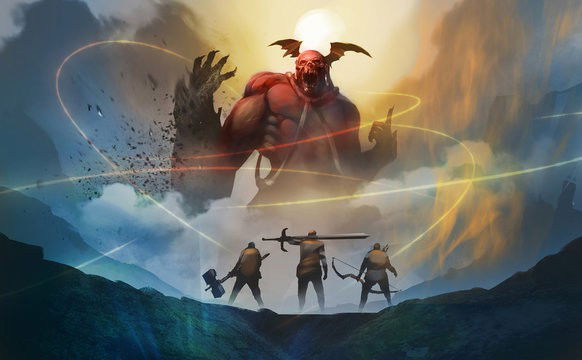
Make it memorable
Create charismatic villains
Having one or more charismatic villains will make the group take a personal interest in the story.
Note that a charismatic villain doesn't have to be fun and super powerful, but interesting in a way that characters and players won't forget about.
Defining what a “good villain” is a long topic that we can talk about better in articles focused on it, but focus on personality, design and motivation. A character that has outstanding characteristics and a believable objective will be much better than a generic “dark wizard”.
Create special environments
Campaigns, unlike one-shots, give you the freedom to travel through numerous environments and whether in a fantasy world or not, make sure these locations are special.
Don't just look at it, describe sounds and smells, give character to environments and, when possible, think of unique geographies or architecture that will make players remember and even want to go back there one day.
If you find references on the internet, use them as tools to facilitate the group's visualization, but don't forget that a good narrative will still be essential.
A living world
Don't forget the world at the expense of the players. The campaign gives freedom to change course, but what has already been presented will continue to happen in one form or another.
Keep a history of events in the world and make them recur in some way in the future or let them know the long-term results of their actions.
Has the group decided to ignore the group of mages who seek to summon an ancient god? Maybe after a few adventures, they'll find they've made it. The deposed king of the realm that gave way to the refugee prince the group saved may emerge with an army to support them at the worst time.
The possibilities are endless if you keep the world alive around your characters.
The Player's Role
Support the group
It's normal to think that their role as a player is just playing their character, and in fact, most focus only on that, which is terrible.
Organizing a campaign takes time and effort from the Storyteller, so support your game as much as you can. Make life easier for the narrator by supporting your group inside and outside the narrative!
Ways to support are tidying the game table and accessories, organizing snacks, tidying the initiative order in longer combats and not ignoring the hooks that the adventure generated for no good reason.
Small actions for a player can give a great relief to the GM. Especially at big tables, if each player takes on an extra task it won't get heavy and everyone will have more fun!
Understand your character
Don't do metagame, what your character knows and what you know are entirely different actions and if in your history you put that it's somehow going against it just to get along is a path of no return to a game without emotion.
Know what your character is capable of, what they seek and what they avoid. If your Storyteller followed the above tips, they will expect that from your character and will reward you with a great joint story at the end of the day, so don't be afraid.
Be a fan of your campaign
Do you know how excited you get when your favorite series releases a new episode, and how you prepare to watch it? Your RPG needs just that!
You must really be a fan of your campaign. Draw your character, write a diary, talk about it, create theories, support your creators in the best way and try, as much as possible, not to hamper your progress with absences, delays and arguments.
Aside from paying tables, the value of a campaign is the story and the moment that a group of friends will spend together while playing and that is priceless, make it count and be a true fan of those moments. That will definitely mark your life.
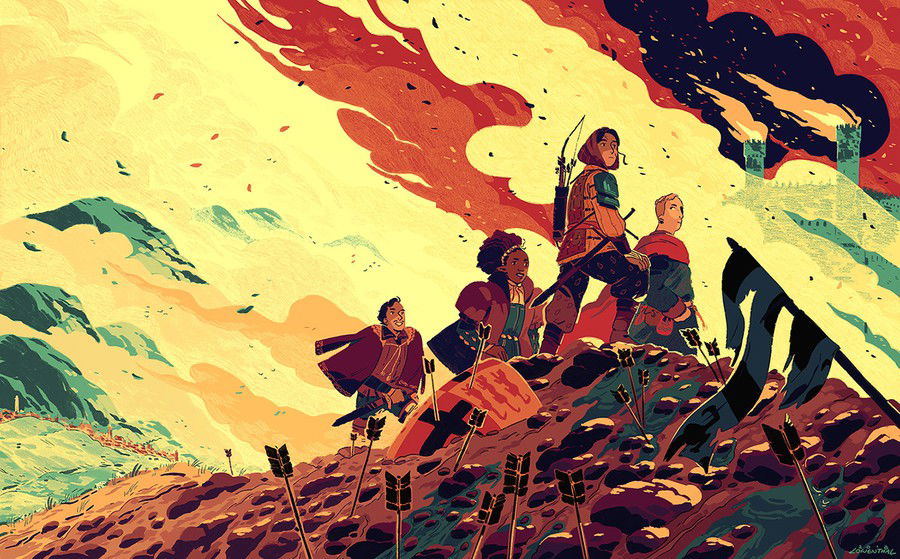
Now it's time to get started!
When we talk about RPG we have, innately, the vision of campaigns. And they are really fun, but challenging!
As hectic as life is, online gaming apps help us facilitate a process that is physically next to impossible, so give it a go and try, whether for the first time or returning to an old style of play, to give campaigns a chance at your next table.
And you, how long did your biggest campaign last and in which system or scenario? Do you have any other tips or suggestions? Leave a comment and let us know!

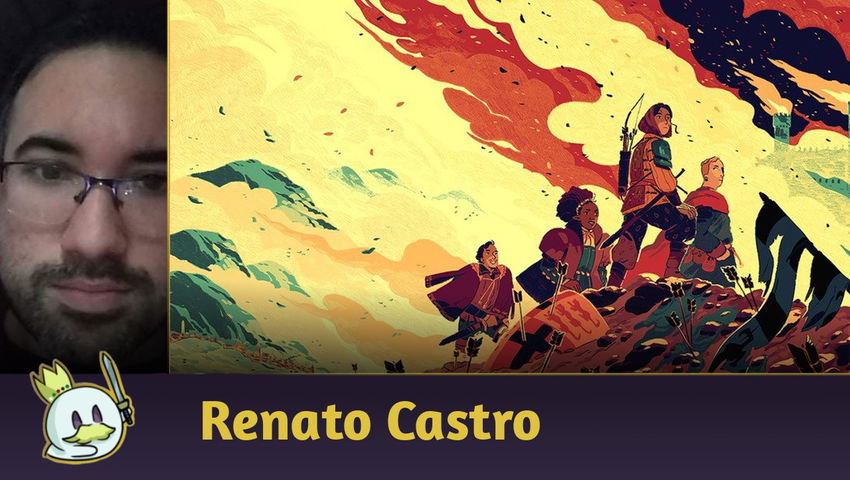







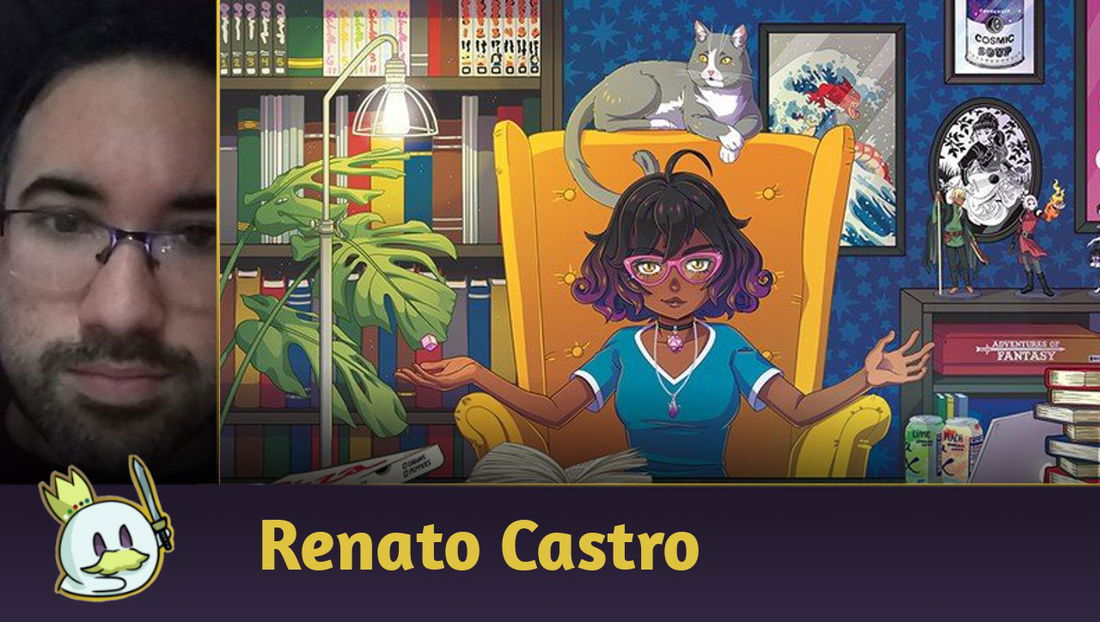




— 评论 0
, 反应 1
成为第一个发表评论的人